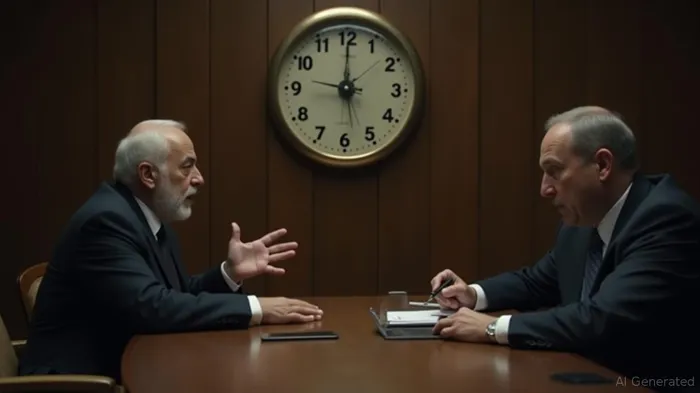Iran Offers Conditional Halt to Hostilities if Israel Stops Attacks by 4 a.m.
Iranian Foreign Minister Seyed Abbas Araghchi has issued a conditional statement on a potential Iran ceasefire, offering a glimmer of hope amidst widespread geopolitical anxiety. This isn’t an agreement, but rather a unilateral declaration of intent that could significantly alter the trajectory of recent hostilities. On a prominent social media platform, the Iranian Foreign Minister clarified that there is “NO ‘agreement’ on any ceasefire” currently in place. This distinction is crucial, as it indicates a lack of formal negotiation or mutual understanding with the opposing party. However, his subsequent declaration introduces a significant condition: if Israel halts its “illegal aggression” by 4 a.m. Tehran time, Iran has “no intention to continue [its] response” beyond that point. This conditional pause highlights a complex diplomatic maneuver, where Iran is signaling a willingness to de-escalate without entering into a formal agreement.
This statement, while not a binding treaty, serves as a public declaration of intent, putting the onus on Israel to respond. The specific timestamp provides a clear deadline, making the situation highly time-sensitive. It suggests a calculated move to potentially open a window for de-escalation, even if temporary. The term “illegal aggression” used by the Iranian Foreign Minister underscores the narrative from Tehran’s perspective regarding the ongoing hostilities.
To fully grasp the significance of this announcement, it’s essential to understand the context of the recent Israel attacks and the broader regional dynamics. The statement comes amidst heightened tensions and retaliatory actions between Iran and Israel, which have seen a dangerous escalation in recent weeks. Both nations have engaged in actions they describe as defensive responses to perceived provocations, leading to a cycle of violence that has raised concerns across the globe. The history between Iran and Israel is long and complex, marked by ideological differences, proxy conflicts, and strategic rivalries. Recent events have brought these long-simmering tensions to the forefront, leading to direct military exchanges that were once largely confined to shadow operations. This direct confrontation has amplified fears of a wider regional conflagration, drawing in other actors and potentially destabilizing an already volatile region. The conditional ceasefire offer, therefore, represents a potential, albeit fragile, pause in this dangerous escalation, providing a moment for international diplomacy to potentially intervene.
The prospect of a conditional halt to hostilities presents both immense challenges and potential opportunities for the deeply entrenched Middle East conflict. The primary challenge lies in the interpretation and acceptance of the condition itself. Israel’s stance on its actions, often framed as self-defense, directly contrasts with Iran’s characterization of them as “illegal aggression.” Bridging this narrative gap is crucial for any de-escalation to hold. Key challenges include a trust deficit due to decades of animosity and lack of direct diplomatic ties, defining what constitutes a complete cessation of “illegal aggression” from Iran’s perspective, the sustainability of any temporary pause, and the involvement of regional and global powers with their own interests. Potential opportunities include a window for diplomacy, de-escalation of direct military exchanges, humanitarian relief, and a reassessment of strategies and objectives by both sides.
The ongoing developments in the Middle East have profound implications for geopolitical tensions worldwide. Any escalation or de-escalation between Iran and Israel sends ripples across international markets, diplomacy, and security frameworks. Global powers are keenly watching the situation, as a full-blown regional conflict could have catastrophic consequences far beyond the immediate combat zones. Economically, the region is a vital hub for global energy supplies. Instability here can lead to spikes in oil prices, affecting economies globally. Politically, it tests the limits of international law and the effectiveness of multilateral institutions in preventing conflict. The humanitarian cost, should the conflict intensify, would be immense, leading to further displacement and suffering. The conditional ceasefire offer, therefore, is not just a regional matter; it’s a global concern. It underscores the interconnectedness of international security and the delicate balance of power that underpins global stability. The reaction from various international bodies and nations will be crucial in determining whether this fragile opening leads to a more lasting calm or merely a temporary lull before another storm.
The statement from Iran’s Foreign Minister has direct implications for global stability. A successful de-escalation, even a temporary one, could prevent a wider war that would inevitably draw in other nations and have devastating economic and human costs. Conversely, if the offer is not met, or if hostilities resume, the world could face an even more volatile period. The phrase “a final decision on ending military operations will be made later” is particularly telling. It signifies that the current offer is a tactical pause, not a definitive end to the conflict. This leaves room for future developments and continued uncertainty. International diplomacy will be key in encouraging both sides to seize this potential moment of de-escalation and move towards more constructive engagement.
In conclusion, Iranian Foreign Minister Seyed Abbas Araghchi’s statement marks a pivotal moment in the ongoing Middle East conflict. It is not a formal Iran ceasefire agreement, but a conditional declaration of intent to halt their response if Israel attacks cease by a specific time. This unilateral offer, while fragile, presents a critical window for de-escalation amidst escalating geopolitical tensions, offering a sliver of hope for enhanced global stability. The world watches anxiously to see if this crucial opportunity for a pause will be seized, potentially averting a more catastrophic regional conflict. The path forward remains uncertain, but for now, the possibility of a temporary cessation of hostilities offers a much-needed moment for reflection and potential diplomatic engagement.

Comprende rápidamente la historia y el origen de distintas monedas bien conocidas
Latest Articles
Stay ahead of the market.
Get curated U.S. market news, insights and key dates delivered to your inbox.



Comments
No comments yet